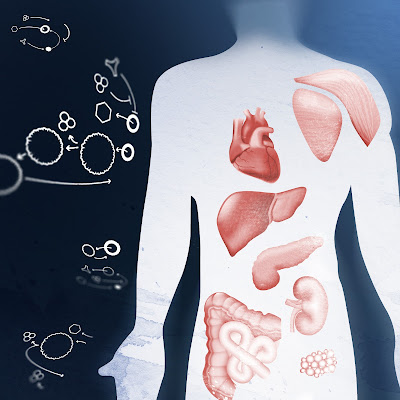Inflammation is a natural process that helps the body fight off infection and promote healing. However, chronic inflammation can damage your health, leading to various chronic diseases such as cancer, heart disease, and arthritis. One of the causes of chronic inflammation is organ inflammation, which occurs when one or more organs in the body become inflamed. This article discusses what organ inflammation is, its symptoms, and strategies for reducing it.
Understanding Organ Inflammation:
Organ inflammation refers to the swelling and redness of an organ that occurs due to the accumulation of immune cells, blood vessels, and fluid. Some of the most commonly affected organs by inflammation include the liver, pancreas, kidneys, lungs, and intestines. The rash can be acute or chronic, with chronic inflammation lasting for months or years.
Symptoms of Organ Inflammation:
The symptoms of organ inflammation vary depending on the type of organ affected. For example, liver inflammation (hepatitis) may cause jaundice, fatigue, and abdominal pain, while kidney inflammation (nephritis) may lead to high blood pressure and proteinuria. In general, some common symptoms of organ inflammation include Zamad Jalinus :
- Fever
- Pain
- Fatigue
- Chills
- Loss of appetite
- Nausea and vomiting
- Swelling
Strategies for Reducing Organ Inflammation:
While organ inflammation can be a severe health issue, there are several strategies you can use to reduce it and prevent chronic inflammation. Here are some practical strategies that you can try:
Adopt an Anti-Inflammatory Diet:
One of the most effective ways to reduce organ inflammation is to eat an anti-inflammatory diet rich in whole foods, such as fruits, vegetables, nuts, and legumes. Such a diet is low in processed foods, sugar, and unhealthy fats, which can trigger inflammation. Some of the best anti-inflammatory foods include:
- Leafy greens (spinach, kale)
- Berries (blueberries, raspberries)
- Fatty fish (salmon, sardines)
- Nuts (walnuts, almonds)
- Whole grains (brown rice, quinoa)
Regular Exercise:
Regular exercise has been shown to reduce inflammation by promoting the production of anti-inflammatory cytokines. The recommended level of physical activity is at least 150 minutes per week of moderate aerobic activity or 75 minutes per week of vigorous aerobic activity. Aerobic exercises such as walking, jogging, swimming, and cycling are excellent starting methods.
Maintain a Healthy Weight:
Excess body weight can contribute to chronic inflammation, especially around the waistline (visceral fat). Losing weight by adopting a healthy diet and regular exercise can help reduce inflammation and improve overall health.
Get Enough Sleep:
Sleep is crucial for maintaining healthy immune function and reducing inflammation. Adults should aim for seven to eight hours of sleep each night. Poor sleep quality or disruptions to your sleep-wake cycle may contribute to inflammation.
Manage Stress:
Chronic stress can lead to the production of pro-inflammatory molecules that contribute to organ inflammation. Techniques like meditation, deep breathing, yoga, or spending time in nature can help reduce stress levels.
Quit Smoking:
Smoking is one of the leading causes of chronic inflammation and organ damage. Cigarette smoking contains many harmful chemicals that can trigger inflammation in the lungs, liver, and other organs. Quitting smoking is one of the most effective ways to reduce inflammation and improve overall health.
Take Anti-Inflammatory Supplements:
Supplements can be used alongside an anti-inflammatory diet and lifestyle changes to reduce inflammation. Some of the most commonly used Herbal Supplements include:
- Fish oil (omega-3 fatty acids)
- Curcumin (turmeric)
- Probiotics
- Vitamin D
Consult with a Healthcare Professional:
If you are experiencing any symptoms of organ inflammation, it's essential to consult with your healthcare provider. They can help diagnose the underlying cause of inflammation and recommend appropriate treatment options. Medication or other medical interventions may sometimes be necessary to manage chronic inflammation effectively.
Conclusion:
Organ inflammation can significantly impact your health, leading to chronic diseases if left untreated. Fortunately, adopting an anti-inflammatory diet, regular exercise, healthy sleeping habits, stress management, weight loss, quitting smoking, taking anti-inflammatory supplements, and consulting with your healthcare professional can all contribute to reducing inflammation in your body. By making these changes to your lifestyle, you can improve your overall health and reduce your risk of developing chronic diseases that arise from chronic inflammation.


Comments
Post a Comment